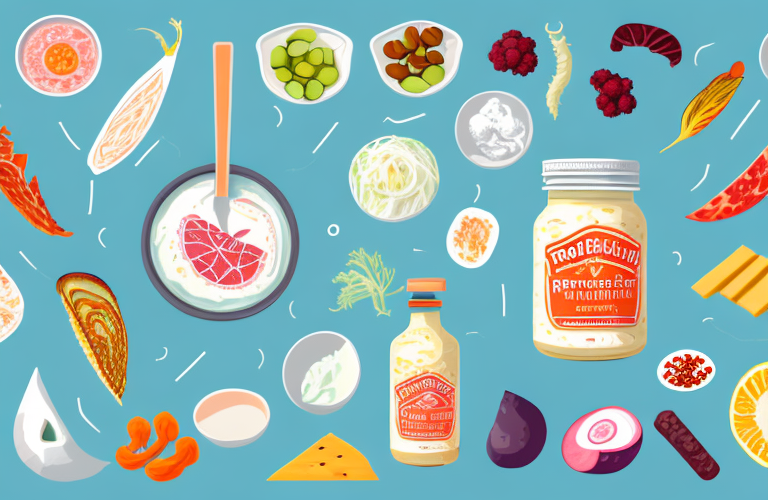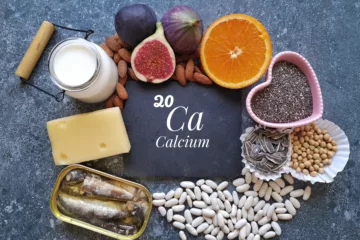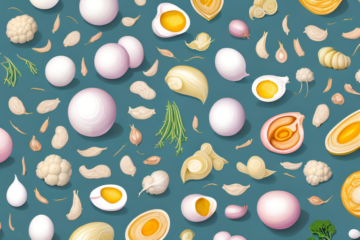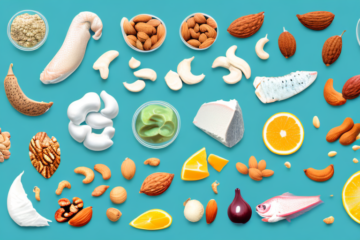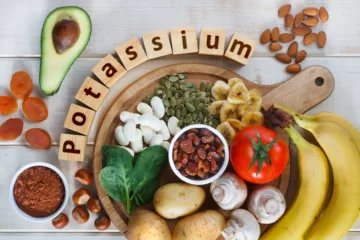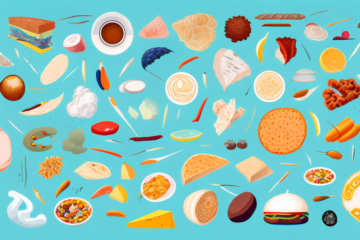Probiotics are the good bacteria that live in your gut and play a crucial role in maintaining your overall health. These microbes help to break down food, produce essential vitamins and minerals, and boost your immune system. Maintaining a healthy gut flora has numerous benefits, including aiding digestion, improving skin health, and reducing inflammation. Eating probiotic-rich foods is one of the easiest ways to support your gut bacteria. In this article, we’ll explore the benefits of consuming probiotics, top foods to add to your diet, and how to choose the best probiotic foods for your needs.
What are probiotics and why are they important for your health?
Probiotics are live microorganisms that live in your gut and are essential for maintaining a healthy digestive system. These bacteria help to break down food, fight harmful bacteria in the gut, and modulate your immune system. When your gut flora is out of balance, it can lead to various health issues, including digestive problems, skin conditions, and even mental health disorders. Eating probiotic-rich foods can help restore the balance of good bacteria in your gut and promote better overall health.
Probiotics can be found in a variety of foods, including yogurt, kefir, sauerkraut, kimchi, and kombucha. However, it’s important to note that not all probiotics are created equal. Different strains of bacteria have different health benefits, so it’s important to choose a variety of probiotic-rich foods to ensure you’re getting a diverse range of beneficial bacteria. Additionally, taking probiotic supplements can also be beneficial for those who may not be able to get enough probiotics through their diet alone.
The benefits of consuming probiotic-rich foods
Probiotics have numerous health benefits, particularly for your digestive system. Eating foods that are rich in probiotics can help promote regular bowel movements, reduce inflammation in the gut, and boost the immune system. Studies have also shown that probiotics may help to prevent and treat various health issues, including obesity, type 2 diabetes, and certain types of cancer. Additionally, consuming probiotic foods may also improve skin health, reduce anxiety and depression, and enhance overall well-being.
Furthermore, probiotics have been found to have a positive impact on mental health. Research has shown that the gut-brain axis, which is the connection between the gut and the central nervous system, plays a crucial role in regulating mood and behavior. Probiotics can help to improve this connection, leading to a reduction in symptoms of anxiety and depression. In fact, some studies have even suggested that probiotics may be as effective as certain antidepressant medications in treating these conditions.
Top 10 probiotic foods to add to your diet
There are several different types of probiotic foods that you can add to your diet to support your gut health. Here are some of the most popular probiotic-rich foods:
- Yogurt
- Kefir
- Sauerkraut
- Kombucha
- Miso
- Tempeh
- Pickles
- Kimchi
- Buttermilk
- Cottage cheese
It’s important to note that not all yogurts are created equal. Look for brands that contain live and active cultures, and avoid products that are high in sugar and artificial additives. Also, make sure to choose fermented foods that appeal to your palate, as enjoying what you eat is a crucial aspect of healthy eating.
In addition to the probiotic-rich foods listed above, there are other foods that can also support gut health. These include prebiotic foods, which are high in fiber and help feed the good bacteria in your gut. Examples of prebiotic foods include garlic, onions, bananas, and asparagus.
It’s also important to note that while probiotic foods can be beneficial for many people, they may not be suitable for everyone. If you have a weakened immune system or are taking certain medications, it’s best to talk to your doctor before adding probiotic foods to your diet.
How do probiotic supplements compare to probiotic foods?
While there are supplements available that contain probiotics, consuming probiotic-rich foods is arguably a better option. Whole foods contain a variety of beneficial nutrients that work together synergistically to promote better health. Furthermore, supplements may not contain the same variety or amount of probiotics found in food sources. However, supplements are a viable option for those who have difficulty digesting certain foods or who need a more targeted approach to address specific health concerns.
It’s important to note that not all probiotic foods are created equal. Some fermented foods, such as yogurt and kefir, contain live cultures of beneficial bacteria, while others, such as pickles and sauerkraut, may be pasteurized, which kills off the probiotics. Additionally, some probiotic supplements may contain strains of bacteria that are not found in food sources, which may offer unique health benefits.
Ultimately, the best approach is to incorporate a variety of probiotic-rich foods into your diet, such as yogurt, kefir, kimchi, and miso, while also considering supplements as a complementary option. It’s important to consult with a healthcare professional before starting any new supplement regimen, especially if you have underlying health conditions or are taking medications that may interact with probiotics.
Probiotic drinks: Are they worth the hype?
Probiotic drinks, such as kombucha and kefir, have gained popularity in recent years. While they do offer a good source of probiotics, it’s important to note that not all probiotic drinks are created equal. Many brands contain added sugars, which can negate any benefits from the probiotics. Additionally, some probiotic drinks may contain higher levels of alcohol or caffeine, which may not be suitable for everyone. As with any product, read the labels carefully and choose a drink that contains real, whole ingredients.
It’s also important to note that probiotic drinks should not be used as a replacement for medical treatment. While they may offer some health benefits, they should not be relied upon to treat or cure any medical conditions. It’s always best to consult with a healthcare professional before making any significant changes to your diet or health routine.
Finally, it’s worth mentioning that probiotic drinks can be quite expensive. If you’re on a tight budget, you may want to consider making your own probiotic drinks at home. There are many recipes available online, and making your own drinks can be a fun and rewarding experience. Plus, you’ll have complete control over the ingredients and can ensure that your drink is free from any unwanted additives or preservatives.
How to choose the best probiotic foods for your needs
When it comes to choosing the best probiotic foods for your needs, there are a few factors to consider. First, consider your personal taste preferences and choose foods that you enjoy. Next, look for brands that contain live and active cultures, as this indicates that the food contains viable probiotics. Finally, aim to include a variety of different types of probiotic foods in your diet to ensure a broad spectrum of beneficial bacteria.
It’s also important to consider the specific health benefits you are looking for when choosing probiotic foods. For example, if you are looking to improve your digestive health, fermented vegetables like sauerkraut and kimchi may be a good choice. On the other hand, if you are looking to boost your immune system, yogurt and kefir may be more beneficial.
Additionally, it’s important to be mindful of the sugar content in some probiotic foods, such as flavored yogurts. Opt for plain, unsweetened varieties and add your own fruit or honey for sweetness if desired. It’s also a good idea to start slowly when incorporating probiotic foods into your diet, as too much too quickly can cause digestive discomfort.
The role of gut health in overall wellness
Gut health plays a crucial role in overall wellness, as the state of your digestive system can impact numerous aspects of your health. Maintaining a healthy gut flora is essential for proper digestion, nutrient absorption, and immune function. Additionally, research has shown that there is a strong connection between gut health and mental health, as the gut-brain axis is closely linked. By supporting your gut health through proper diet and lifestyle factors, you can improve your overall wellness and vitality.
One of the key factors in maintaining a healthy gut is consuming a diverse range of foods. This includes a variety of fruits, vegetables, whole grains, and fermented foods such as yogurt, kefir, and sauerkraut. These foods contain beneficial bacteria and prebiotic fibers that help to nourish and support the growth of healthy gut flora. In addition to diet, other lifestyle factors such as stress management, regular exercise, and getting enough sleep can also play a role in promoting gut health and overall wellness.
Can probiotics help with digestive issues and bloating?
Probiotics have been shown to be helpful in reducing symptoms of digestive issues, such as bloating, gas, and constipation. Probiotics work by restoring the balance of beneficial bacteria in the gut, which can alleviate discomfort. However, it’s important to note that not all digestive issues can be solved through dietary changes alone, and it’s important to seek medical advice if you are experiencing persistent symptoms.
In addition to their potential benefits for digestive issues, probiotics have also been studied for their potential to boost the immune system and improve mental health. Some studies have shown that certain strains of probiotics can help reduce symptoms of anxiety and depression, and may even improve cognitive function. However, more research is needed in these areas to fully understand the potential benefits of probiotics beyond digestive health.
Probiotics and immunity: What you need to know
Probiotics have been shown to boost immunity by promoting the growth of beneficial bacteria in the gut. These bacteria help to fight off harmful microbes and protect the body against infection. Additionally, probiotics may also reduce inflammation in the body, which can help to prevent chronic disease. While maintaining a healthy gut flora is essential for immune function, it’s important to note that overall lifestyle factors, such as exercise and stress management, also play a crucial role in supporting immunity.
In addition to promoting a healthy gut flora, probiotics have also been found to have potential benefits for mental health. Studies have shown that probiotics may help to reduce symptoms of anxiety and depression, possibly by modulating the gut-brain axis. While more research is needed in this area, it’s promising to see the potential for probiotics to have a positive impact on both physical and mental health.
The science behind how probiotics work in the body
Probiotics work in the body by restoring the balance of bacteria in the gut. When harmful bacteria outnumber beneficial bacteria, it can lead to a variety of health issues. Probiotics help to restore this balance by promoting the growth of beneficial bacteria and inhibiting the growth of harmful bacteria. Additionally, probiotics may also produce beneficial byproducts, such as short-chain fatty acids, which have been shown to improve gut health and reduce inflammation.
Research has also shown that probiotics can have a positive impact on mental health. The gut and brain are connected through the gut-brain axis, and studies have found that probiotics can help to reduce symptoms of anxiety and depression. This is thought to be due to the production of neurotransmitters, such as serotonin, in the gut. Probiotics may also help to improve cognitive function and reduce stress levels.
Probiotic recipes: Creative ways to incorporate more probiotics into your meals
There are plenty of creative ways to incorporate more probiotic-rich foods into your meals. Here are a few ideas:
- Add kefir to your morning smoothie
- Mix sauerkraut into your salad
- Make probiotic-rich dips with yogurt or kefir
- Use miso paste as a marinade for meat or vegetables
- Drink kombucha as a refreshing alternative to sugary sodas
- Make a probiotic-rich tempeh stir-fry
Experiment with different flavors and ingredients to find the probiotic-rich foods that you enjoy most.
It’s important to note that not all probiotic-rich foods are created equal. Some may contain higher levels of beneficial bacteria than others. For example, fermented vegetables like kimchi and pickles may have more diverse strains of probiotics than yogurt or kefir. Additionally, it’s important to choose products that are labeled as containing live and active cultures to ensure that you’re getting the most benefit from your probiotic-rich foods.
Prebiotics vs probiotics: What’s the difference?
While probiotics restore the balance of beneficial bacteria in the gut, prebiotics help to nourish the good bacteria that are already present. Prebiotics are types of fiber that are not digested by the body, but instead, are fermented by beneficial bacteria in the gut. This fermentation process produces beneficial metabolites and creates an environment that promotes the growth of beneficial bacteria. Prebiotic-rich foods include garlic, onions, bananas, and asparagus, among others.
It is important to note that while both prebiotics and probiotics are beneficial for gut health, they work in different ways. Probiotics are live microorganisms that can be found in certain foods or supplements, and they help to introduce new beneficial bacteria into the gut. On the other hand, prebiotics are non-living substances that are already present in certain foods, and they help to feed and support the growth of the existing beneficial bacteria in the gut. Therefore, incorporating both prebiotic-rich foods and probiotics into your diet can help to promote a healthy gut microbiome.
How to store and handle probiotic foods properly
Probiotic foods are living organisms and require proper storage and handling to maintain their beneficial properties. Here are some tips to keep your probiotic foods fresh and potent:
- Refrigerate probiotic-packed foods as soon as possible after purchase
- Store probiotic supplements in a cool, dry place
- Follow the expiration date on the product labels
- Practice good hygiene when preparing probiotic-rich foods
- Choose products that are free from harmful additives and preservatives
It’s important to note that not all probiotic foods are created equal. Different strains of probiotics have different benefits, and some may require specific storage and handling instructions. For example, fermented vegetables like sauerkraut and kimchi should be stored in airtight containers to prevent exposure to oxygen, which can kill off the beneficial bacteria. Additionally, some probiotic supplements may require refrigeration to maintain their potency. Always check the product label or consult with a healthcare professional for specific storage and handling instructions for your probiotic foods and supplements.
Probiotics and weight loss: Separating fact from fiction
While probiotics have been linked to weight loss in some studies, the evidence is not conclusive. It’s possible that certain strains of probiotics may help to regulate appetite and reduce inflammation, both of which may contribute to weight loss. However, diet and lifestyle factors are likely the most significant contributors to weight management, and no single food or supplement can replace a healthy diet and exercise routine.
In conclusion, probiotic-rich foods are a valuable addition to any healthy diet. By supporting your gut health, you can help to promote better overall wellness and vitality. Incorporate a variety of different types of probiotic- rich foods into your meals, follow proper handling and storage techniques, and consult with a healthcare professional if you are experiencing persistent health issues.
It’s important to note that not all probiotics are created equal. Different strains of probiotics have different effects on the body, and some may be more beneficial for weight management than others. Additionally, the amount and frequency of probiotic consumption may also play a role in their effectiveness. More research is needed to fully understand the relationship between probiotics and weight loss, but incorporating probiotic-rich foods into your diet is a simple and healthy way to support your overall health.

